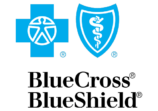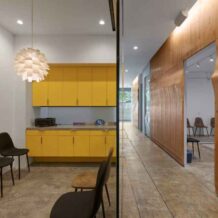Depression
Clinical Depression Treatment in California
Clinical depression is a serious mental health condition that is often not easily noticeable by looking at someone. This is similar to most mental illnesses, but it does not make them less severe than a physical medical illness. One of the first hurdles in managing depression or any mental health condition is acknowledging that it is in fact inhibiting daily life and requires outpatient or inpatient depression treatment. California residents that suffer from depression should seek help at a California depression treatment program.
The stigma around mental health issues is finally starting to disappear as mental health treatment is finally getting the same acceptance as treatment for physical ailments. Like all mental disorders, depression often requires therapy, and medication to manage.
Depression can be debilitating and difficult to manage without proper treatment services. If you or a loved one are suffering from depression, it’s important to seek proper guidance from treatment centers that specialize in managing the condition.
Understanding The Need for Depression Treatment Centers
The 2020 National Survey on Drug Use and Health (NSDUH) found that 8.4% of adults age 18 or over experienced at least one major depressive episode in the last year alone. This accounts for 21 million individuals. The group of individuals who suffered from depression at the highest percentage were young adults between ages 18-25. In fact, 17% of individuals in that age group are impacted by depression. That accounts for 5.6 million depression-affected people from this age group alone.
The 2nd highest percentage of individuals suffering from depression were aged between 25 and 49. Nearly 9.1 percent of people in this age range had stated that they also experienced major depressive episodes.
In 2020, over 6 million adults that were 50 or older experienced a major depressive episode. And nearly 6% of adults aged 18 and over stated that they suffered an impairment of some kind due to major depressive disorder.
Children and teenagers between the ages of 12 to 17 also struggled with major depressive disorder in 2020. Nearly 12% percent in this group experienced a major depressive episode that lead to severe impairments.
What is Depression?
Depression is a common mental health disorder that causes people to experience persistent feelings of sadness and a lack of interest in activities. It can cause a range of symptoms, including fatigue, changes in appetite, sleep problems, and difficulty concentrating. Depression can also lead to physical health problems such as heart disease.
While depression is highly treatable, only a small percentage of people who suffer from the condition receive treatment. Depression treatment requires therapy and sometimes also medication. Depression treatment centers in California such as Tulua Health offer comprehensive care for people.
Here at Tulua Health, we provide a safe and supportive environment where people can receive the care that they need to recover from their mental health conditions. If you or someone you know is suffering from depression, you should look into attending our California depression treatment program.
What are the Different Types of Depression?
Depression can be hard to deal with. It has been linked to not only heart disease but also dementia. There are many reasons why someone might develop symptoms of depression. Mood changes are a normal part of life, but if you’re experiencing symptoms that last for more than just a few weeks, then it’s best to seek treatment by speaking to a mental health professional.
The most common types of depression include major depressive disorder, persistent depressive disorder, bipolar disorder, and seasonal affective disorder.
Major Depressive Disorder
Major depressive disorder, also known as major depression, is a mental disorder characterized by a persistent feeling of sadness or loss of interest. It’s one of the most common mental disorders, and it can have a profound impact on a person’s ability to function in work, school, and social settings.
Symptoms of major depression include depressed mood, loss of interest or pleasure in activities, changes in appetite or weight, insomnia or hypersomnia, fatigue or low energy, feelings of worthlessness or excessive guilt, difficulty concentrating or making decisions, and thoughts of death or suicide.
A California depression treatment program utilizes psychotherapy and medication, and encourages lifestyle changes to manage this form of severe depression. Some people with major depression require hospitalization for their own safety.
Persistent Depressive Disorder
Persistent depressive disorder (PDD), previously known as dysthymia, is a mental illness that causes sufferers to experience depressed moods for long periods of time. While the symptoms of PDD are not as severe as those of major depressive disorder, they can still have a significant impact on a person’s quality of life.
PDD typically begins in adolescence or young adulthood, and it can last for years or even decades if left untreated. Symptoms of PDD include feelings of hopelessness, low self-esteem, and fatigue. People with PDD may also struggle with anxiety disorders, sleep problems, and difficulty concentrating. If you think you may be suffering from PDD, it’s important to talk to a mental health expert about your symptoms. With proper treatment, PDD is a highly treatable condition.
Bipolar Disorder
Commonly referred to as a mood disorder, bipolar disorder is a serious mental illness that causes extreme swings in mood, energy, and activity levels. People with this mental health condition can have periods of depression, where they feel sad and low, and periods of mania, where they feel high and energized. This mental disorder can be disabling, making it difficult to work, study, or even take care of day-to-day activities.
With the proper mental health treatment, most people can manage symptoms of their mood disorders and lead fulfilling lives. Mental health treatment typically includes medication and counseling. If you think you suffer from bipolar disorder, it’s important to see a mental health professional for an evaluation. Getting the right diagnosis and treatment can make all the difference.
Seasonal Affective Disorder (SAD)
Seasonal affective disorder, also known as SAD, this type of depression affects individuals during the fall and winter months. People with SAD often experience depression symptoms such as fatigue, low energy, weight gain, and cravings for carbohydrates. While the exact cause of SAD is unknown, it is believed to be related to changes in sunlight exposure and the body’s production of melatonin and serotonin.
For many people, SAD can be effectively treated with light therapy, which involves exposing the person to artificial light for a set period of time each day. In addition, medication and talk therapy may also be helpful for people suffering from SAD.
Women's Depression
Women experience mental health conditions at nearly twice the rate of men. While depression is one of the most common mental health conditions faced by women of all ages, there are some types of depression that are unique to women. For example, postpartum depression affects new mothers and can make it difficult to bond with their babies.
Perimenopausal depression is another type of depression that is specific to women and can occur during the years leading up to menopause. If you are struggling with any type of depression, it is important to seek professional depression treatment at a California depression treatment program. A mental health counselor or treatment center can provide you with the resources and that support you need.
Signs and Symptoms of Depression
Depression can cause severe symptoms. These may include feeling low or hopeless, having little energy or interest in activities, and experiencing changes in sleep patterns. Some other symptoms include difficulty concentrating or making decisions, changes in appetite or weight, sleep disturbances, and thoughts of death or suicide.
Anyone experiencing several of these symptoms for two weeks or more should see a doctor for an evaluation. With our California depression treatment program, most people are able to feel better and return to their normal activities.
Depression Treatment
A depression treatment center will offer many different options including medication, counseling, and professional residential treatment or outpatient programs. Before deciding what treatment approach is needed the individual will get a thorough evaluation.
Depression Treatment Programs
Depression treatment centers in California like Tulua Health offer a variety of outpatient programs to help individuals manage their mental illnesses. Deciding between different treatment centers will likely depend on if you should be attending outpatient treatment or inpatient treatment. Depression treatment centers in California offer both options.
Inpatient Depression Treatment
Inpatient treatment is a highly structured program that requires the individual to reside at the facility for the entire length of treatment. An inpatient treatment program is ideal for someone that is suffering from severe depression symptoms or co-occurring disorders like drug addiction. This is sometimes also referred to as dual diagnosis treatment.
Inpatient depression treatment is generally reserved for individuals whose lives have become unmanageable and require 24/7 care. If you are recommended for inpatient treatment after your evaluation, you should choose an inpatient treatment center for the best chance of success.
Outpatient Depression Treatment
Outpatient treatment is a more flexible program that allows individuals to attend work, school, or other responsibilities outside of the treatment center. There are several levels of outpatient treatment so that people can attend the program best for them.
Partial hospitalization program (PHPs) – The most intense outpatient treatment program available as it requires a larger commitment of time at the treatment center. PHP typically includes more emphasis on relapse prevention therapy. Typically the individual will attend 5 days a week and maybe in treatment and therapy for up to 8 hours a day.
Intensive outpatient program (IOPs) – Intensive outpatient programs are still considered to be more intensive forms of outpatient treatment however they are not as strict as Partial hospitalization programs. They typically require a commitment of 3- 5 days a week and 5-7 hours a day.
Outpatient Treatment – A standard outpatient treatment program is usually 3 days a week with 3-5 hours per day. Therapy is highly customizable and can be moved to fit the individual’s schedule. A standard outpatient program is recommended for individuals that just need additional support and are not at serious risk for relapse.
Therapy for Depression
Therapy is the cornerstone for treating mental illnesses. Typical types of therapy include family therapy, group therapy, and individual therapy. Group therapy sessions help individuals connect with each other to understand their mental disorders better and build bonds. Individual therapy helps a person suffering from depression open up and discuss painful feelings. Family therapy sessions involve the family learning to understand their loved one’s condition.
Other forms of therapy available during treatment include cognitive behavioral therapy and dialectical behavior therapy. Both forms of therapy help individuals understand how thought patterns lead to specific behaviors. You or your loved ones’ treatment program will likely include a variety of many of these forms of therapy.
Ongoing Depression Treatment
Treating depression is an ongoing process as this mental illness can’t be cured. However, once someone finds the right depression treatment plan, they mitigate any severe depression symptoms from occurring.
A depression treatment center will recommend regular therapy and continuing to take medication. Over time, the same approach may need to be altered as the same type or dose of medication may not be as effective. As long someone is continuing to seek out professional depression treatment to manage the condition, the better they will be able to manage the symptoms.
How Can I Help a Loved One Suffering From Depression?
If you suspect that a loved one is suffering from depression, the first step is to talk to them about it. It can be difficult to bring up the subject, but it’s important to let them know that you’re there for them and that you want to help. Once you’ve had a conversation about their depression, you can work together to find a treatment center that’s right for them. There are many different types of depression treatment, ranging from medication to therapy.
If your loved one is open to medication, there are a variety of options available, so it’s important to work with a treatment team to find the right one. If they’re not interested in medication, or if medications haven’t worked in the past, there are still plenty of ways to treat depression. Therapy can be an effective depression treatment, and there are many different types of therapy available.
You and your loved one can work with a therapist to find the right fit. In addition, self-care is an important part of your California depression treatment program. Encouraging your loved one to eat healthy, exercise, and spend time with supportive family members can make a big difference.
Lastly, be patient and understanding. Depression is a difficult illness, and any treatment plan will take time. But with patience and support, your loved one should find a treatment process that works for them.
From Support for Depression at Tulua Health
Tulua Health offers a unique approach to treating mental health conditions and addiction. If you or a loved one is suffering from either or both, we can develop an individualized treatment program to address the specific behavioral health issues that you suffer from. Our treatment center here at Tulua Health offers a world-class facility with a variety of evidence-based therapies as well as holistic options to treat the whole person. At Tulua Health, we design each program for each person.
To learn more about our California depression treatment program, please contact our admissions team today.
Safe, Nurturing, Healing
Tulua Health is More Than a Recovery Center
Safety and support form the cornerstone of recovery at Tulua Health. We offer a nurturing environment that extends beyond treatment. Our facilities boast modern amenities, ensuring privacy, comfort, and a range of supportive programs. Here, every aspect of our sober living homes is designed to provide you with a sanctuary that you can proudly call home.
We couldn't do what we do without a team of experienced professionals who are passionately dedicated to the wellness of Tulua Health clients.
Take a moment to learn about our team and to familiarize yourself with some of the faces you'll meet while receiving care at Tulua Health.




We Accept Many Health Plans





It Starts here
Get a Free Health Coverage Verification
Wellness doesn't just happen. Our team of behavioral health specialists can help find the plan that is right for you. If you're ready for a new start, click below to submit a free health insurance verification request.




